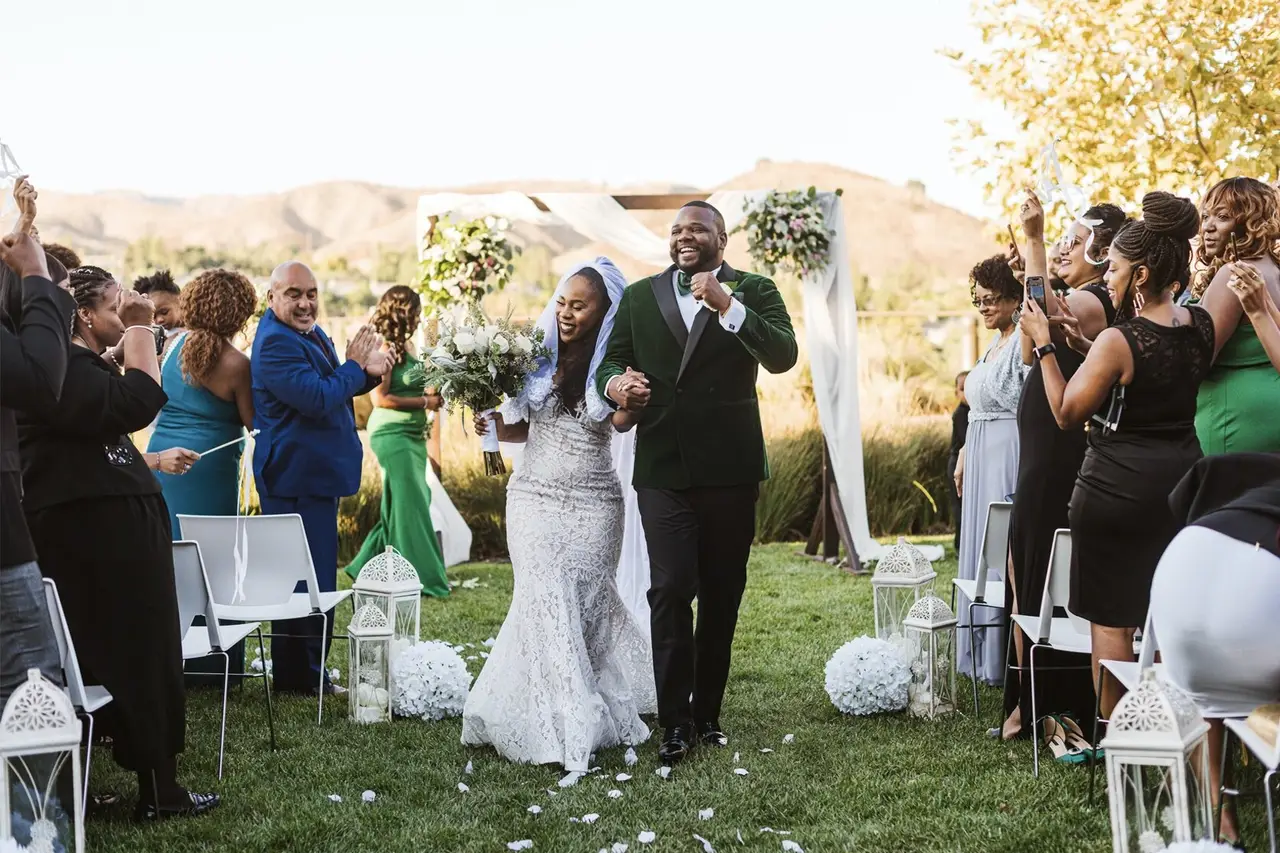plan your wedding is an exhilarating journey that culminates in one of life’s most memorable celebrations. From the initial excitement to the intricate details, every aspect requires careful consideration and organization. To ensure that your special day unfolds flawlessly, mastering the art of how to plan your wedding is essential. This comprehensive guide will walk you through the crucial steps and tips for creating the perfect day.

Setting the Stage for Success
The foundation of a successful wedding begins with a solid plan. Understanding how to plan your wedding involves outlining your vision, setting realistic goals, and organizing every detail to reflect your unique style.
Define Your Vision
Before diving into the specifics, it’s vital to define your vision. Ask yourself and your partner about your ideal wedding. Consider factors such as:
- Theme and Style: Do you envision a classic, rustic, modern, or destination wedding? Defining the theme helps in making cohesive choices for décor, attire, and venue.
- Size and Scope: Determine whether you prefer an intimate gathering or a grand celebration. This decision will influence your venue selection, budget, and guest list.
- Personal Touches: Think about incorporating personal elements that reflect your relationship and story. Unique touches make the event truly memorable.
Establish a Budget
A well-defined budget is crucial for a smooth planning process. To effectively plan your wedding, create a detailed budget that includes:
- Venue Costs: Consider both the rental fee and any additional expenses like décor and catering.
- Attire and Accessories: Allocate funds for the bride’s and groom’s outfits, as well as accessories and alterations.
- Entertainment and Photography: Budget for music, entertainment, and professional photography to capture the day’s moments.
- Miscellaneous Expenses: Don’t forget to include costs for invitations, favors, and transportation.
Create a Timeline
A timeline serves as your roadmap to the big day. Knowing how to plan your wedding involves creating a detailed schedule that outlines:
- Key Milestones: Set deadlines for booking venues, selecting vendors, and finalizing details.
- Day-of Schedule: Develop a timeline for the wedding day itself, including the ceremony, reception, and any special activities.
- Buffer Time: Include extra time for unforeseen delays or adjustments to ensure a smooth flow of events.
Choosing the Perfect Venue
Selecting the right venue is one of the most significant decisions in planning your wedding. The venue sets the stage for the entire event and should align with your vision and budget.
Consider Location
Choose a location that is convenient for your guests and suits the style of your wedding. Whether you opt for a traditional banquet hall, a scenic outdoor setting, or a destination venue, ensure that it complements your theme and accommodates your guest list.
Evaluate Capacity and Amenities
When planning your wedding, assess the venue’s capacity and amenities. Consider:
- Seating Arrangement: Ensure there is adequate space for your guest list and any additional elements like a dance floor or stage.
- Catering Options: Check if the venue provides in-house catering or if you need to hire an external caterer.
- Accessibility: Ensure the venue is accessible for all guests, including those with mobility challenges.
Visit Multiple Venues
Don’t settle on the first venue you visit. Explore multiple options to compare features, prices, and availability. Visiting venues in person allows you to visualize how they will fit into your wedding plans.
Selecting Vendors and Services
Choosing the right vendors is key to executing your vision. Each vendor plays a crucial role in bringing your wedding to life.
Research and Recommendations
When learning how to plan your wedding, start by researching potential vendors and seeking recommendations from friends, family, or wedding professionals. Look for:
- Reviews and Portfolios: Review vendor portfolios and read testimonials to gauge their quality and reliability.
- Interviews and Consultations: Schedule meetings to discuss your needs, assess their professionalism, and ensure they align with your vision.
Book Early
Popular vendors often book up quickly, so it’s wise to secure your choices as early as possible. Once you’ve made decisions, confirm contracts and deposit requirements to secure their services.
Coordinate with Vendors
Effective communication is essential for successful vendor coordination. Share your timeline, expectations, and any specific requirements to ensure everyone is on the same page. Regular follow-ups help to address any issues or changes.
Crafting the Perfect Ceremony
The ceremony is the heart of the wedding day and should reflect your values and style. Here’s how to plan your wedding ceremony to perfection:
Personalize the Vows
Personalized vows add a unique touch to your ceremony. Write your own vows or collaborate with your officiant to create a meaningful and heartfelt message.
Plan the Ceremony Structure
Decide on the structure of your ceremony, including:
- Processional and Recessional: Plan the order in which the bridal party and couple will enter and exit.
- Readings and Music: Select readings and music that resonate with you and complement the tone of the ceremony.
- Rituals and Traditions: Incorporate any rituals or traditions that hold significance to you and your partner.
Rehearse
A rehearsal helps ensure that everyone knows their roles and responsibilities. Practice the ceremony sequence with your bridal party, officiant, and any other key participants to address any potential issues.
Designing the Reception
The reception is where the celebration truly comes alive. When learning how to plan your wedding, consider these elements:
Décor and Ambiance
Create an atmosphere that matches your theme and style. Consider:
- Color Scheme: Choose a color palette that complements your theme and venue.
- Table Settings: Select table linens, centerpieces, and place settings that enhance the overall look.
- Lighting: Incorporate lighting elements to create ambiance and highlight key areas.
Entertainment and Activities
Entertainment plays a significant role in keeping guests engaged and entertained. Consider options such as:
- Music: Hire a DJ or band that fits your style and creates a lively atmosphere.
- Games and Activities: Plan interactive activities or games to entertain guests and encourage mingling.
Catering and Menu
Food and drink are central to the reception experience. When planning your wedding menu, consider:
- Catering Style: Choose between plated meals, buffet options, or food stations based on your preference and venue.
- Dietary Restrictions: Accommodate any dietary restrictions or preferences to ensure all guests have enjoyable options.
Final Touches and Details
The final touches and details add the finishing touches to your wedding day. Consider these aspects to ensure everything is perfect:
Invitations and Stationery
Send out invitations well in advance to give guests ample time to RSVP. Consider designing coordinating stationery for programs, menus, and thank-you notes.
Favors and Gifts
Wedding favors are a thoughtful way to thank guests for their presence. Choose items that reflect your personality and provide a lasting memory of your celebration.
Emergency Kit
Prepare an emergency kit with essentials such as sewing supplies, stain remover, pain relievers, and safety pins. This kit will come in handy for any unexpected issues that may arise.
Enjoying Your Big Day
With careful plan your wedding and organization, you’ll be well-prepared to enjoy your wedding day. Here are some tips to ensure you make the most of the occasion:
- Relax and Enjoy: Trust in your preparation and enjoy the day. Take time to savor each moment and celebrate with your loved ones.
- Delegate Responsibilities: Allow your day-of wedding coordinator or trusted friends and family to handle any last-minute details or issues.
- Capture the Moments: Ensure your photographer captures the special moments and memories of your day.
plan your wedding
Mastering how to plan your wedding involves a combination of vision, organization, and attention to detail. By following these tips and embracing each step of the planning process, you can create a wedding day that is both beautiful and memorable. From setting the stage with a clear vision and budget to choosing the perfect venue and vendors, each decision contributes to the success of your celebration.
With thoughtful planning and careful execution, your wedding day will be a reflection of your love and joy, resulting in a perfect celebration that you and your guests will cherish forever. Embrace the journey, and enjoy every moment of creating your dream wedding.
